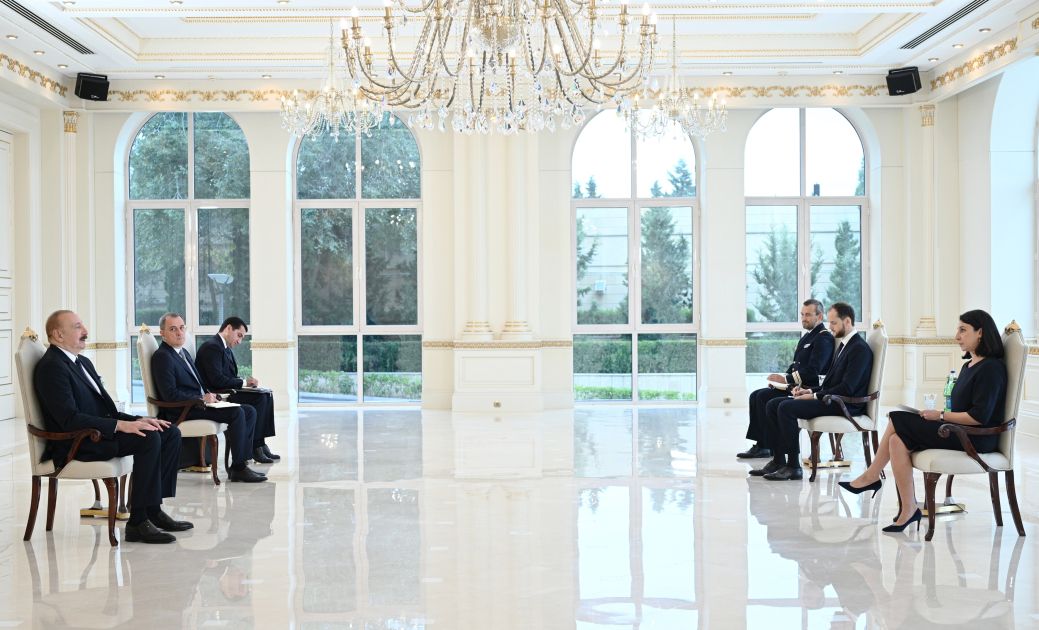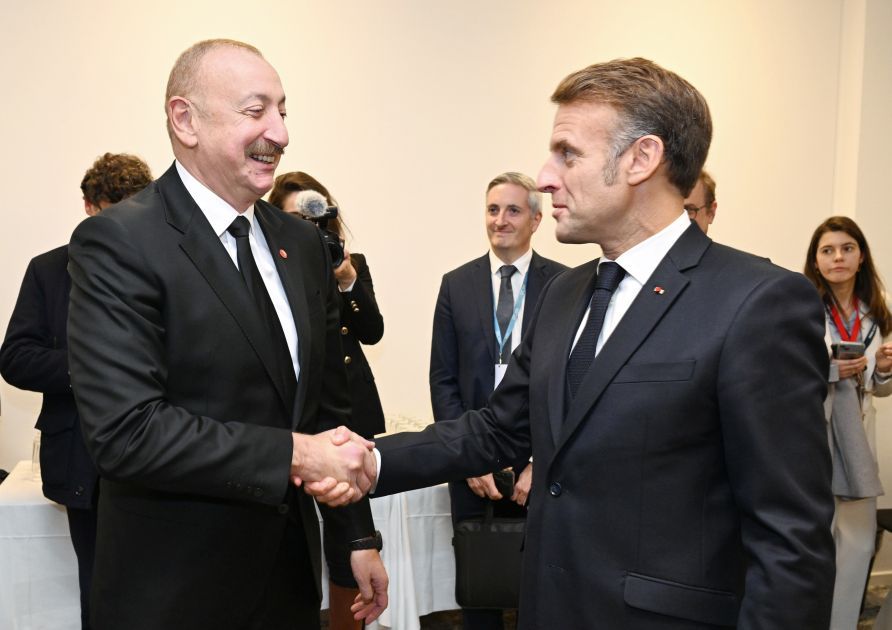|
|
TODAY.AZ / Analytics
Baku-Paris enter new diplomatic chapter as past misunderstandings fade
17 October 2025 [13:59] - TODAY.AZ

Past misunderstandings between Azerbaijan and France have been resolved, said President of the Republic of Azerbaijan Ilham Aliyev as he received the credentials of the newly appointed Ambassador Extraordinary and Plenipotentiary of France to Azerbaijan, Sophie Lagoutte.

This announcement comes at a crucial moment. As we have highlighted during the EPC Summit earlier this month, the event served as a clear signal of a turning point in Azerbaijan–France relations. The developments we are now witnessing confirm that prediction: the prospects for bilateral cooperation are becoming clearer, and both sides appear ready to focus on pragmatic, mutually beneficial engagement.
Azerbaijan has long shaped its foreign relations based on international law and shared interests. Tensions with France had emerged in previous years, largely due to certain French politicians’ biased approach to the Armenia–Azerbaijan conflict, as well as France’s broader geopolitical posture. French officials, in turn, insisted their policy was “neutral.” However, states do not have permanent friends or enemies—they have strategic partners and rivals with whom they interact according to interests. Today, France seems to have abandoned its previous destructive approach toward Azerbaijan, and Baku has responded in kind, signalling a new phase of constructive diplomacy.

Still, the economic ties between the two nations mostly held. Between January and August, Azerbaijan exported roughly $46.3 million in goods to France, while importing about $159.4 million in return. These figures closely mirror those of prior years, making clear that despite political disagreements, the practical trade relationship remained resilient. One clear indication that the previous tensions were largely political and somewhat superficial (without minimising their importance) is the continued ability of French companies and entrepreneurs to operate freely in Azerbaijan. Today, around 60 French companies are active in the country. Even a brief look back shows that France has played a pioneering role in Azerbaijan’s energy sector, most notably, the French company TotalEnergies was the first to develop offshore gas production in Azerbaijan.
France’s earlier support for Yerevan, however, had been driven primarily by its own interests, but it is increasingly evident that ignoring Baku would now be a missed opportunity. With regional dynamics shifting and the South Caucasus gaining geopolitical attention, renewed engagement offers tangible benefits for both sides.
The significance of this shift is also visible in the reactions of the Armenian diaspora, which has launched a series of envious and fear-driven campaigns online, some even targeting our own publications. Such reactions highlight how consequential this new dynamic has become. Azerbaijan’s growing role as an indispensable player in regional and Eurasian affairs is undeniable.
Now, France, under mounting domestic pressure, is itself at a crossroads. The country is experiencing what many observers call its most severe political crisis in seventy years. Soaring energy and food prices, slowing GDP, high debt, and rising social unrest have created broad public discontent and frequent strikes.
President Macron’s authority has been challenged from within and without. He recently reappointed Prime Minister Sébastien Lecornu, who had just resigned amid cabinet disputes—and yet even that change has done little to restore stability. The new cabinet faces the threat of a no-confidence vote, and critics from both opposition parties and internal circles have called for early presidential elections. Polls show that 68% of French citizens believe the government is out of touch with society, and 54% believe Macron has lost the ability to form a stable administration.
In this turbulent environment, Macron has sought to deflect blame. During a visit to Egypt for ceasefire negotiations in Gaza, he sharply criticised French opposition parties for intensifying the political crisis. The message was unmistakable: domestic dissent must not derail foreign policy.
Against that backdrop, Macron does not want to be left out of the South Caucasus. France has strategic interests in the region, especially regarding Armenia. Weakening his legitimacy at home could push him to secure influence abroad before his position weakens further. Engaging more constructively with Azerbaijan now is one such move.
While France may not be the “France of old,” Paris still retains the capacity to influence complex regions through careful strategic and economic moves. The key question now is whether this engagement will be sustained, and what it could mean for the stability and prosperity of the South Caucasus. Thanks to the foresight signalled during the EPC Summit, we can already see that Azerbaijan–France relations are entering a promising new chapter.
URL: http://www.today.az/news/analytics/262784.html
 Print version
Print version
Connect with us. Get latest news and updates.
See Also
- 08 February 2026 [08:00]
JD Vance heads to Caucasus — What Washington hopes to achieve - 07 February 2026 [20:46]
Preparing for war or preventing it? Xi’s military purges and Taiwan timeline - 07 February 2026 [20:15]
From American Dream to Chinese patience, Westerners are borrowing their way of living [OPINION] - 07 February 2026 [15:11]
India’s oil calculus and reality behind Trump’s claims - 07 February 2026 [08:30]
Europe’s gas transition elevates value of Azerbaijan’s pipeline supply - 06 February 2026 [13:23]
Experts examine how Azerbaijan pursued justice outside international courts - 06 February 2026 [08:30]
Why France keeps choosing tension over stability in South Caucasus - 04 February 2026 [20:54]
Epstein files and anatomy of elite impunity - 04 February 2026 [13:05]
Green energy and geopolitics: logic behind Azerbaijan-UAE cooperation - 04 February 2026 [08:30]
Is water new gold? Why investors are turning to water companies
Most Popular
 Epstein files blur fact and fiction with shocking Biden ‘replacement’ claim
Epstein files blur fact and fiction with shocking Biden ‘replacement’ claim
 Int'l Mugham Center holds magnificent concert
Int'l Mugham Center holds magnificent concert
 Zelenskyy claims US gave Ukraine and Russia a deadline to reach peace agreement
Zelenskyy claims US gave Ukraine and Russia a deadline to reach peace agreement
 President Ilham Aliyev receives delegation led by Iranian Minister of Defense and Armed Forces
President Ilham Aliyev receives delegation led by Iranian Minister of Defense and Armed Forces
 Azerbaijan National Carpet Museum opens ‘Silent Prayers’ Exhibition
Azerbaijan National Carpet Museum opens ‘Silent Prayers’ Exhibition
 Gilavar Photo Club launches 'My Urban World' Int'l Photography Competition
Gilavar Photo Club launches 'My Urban World' Int'l Photography Competition
 Epstein files expose deeper ties with global scientific elite
Epstein files expose deeper ties with global scientific elite
